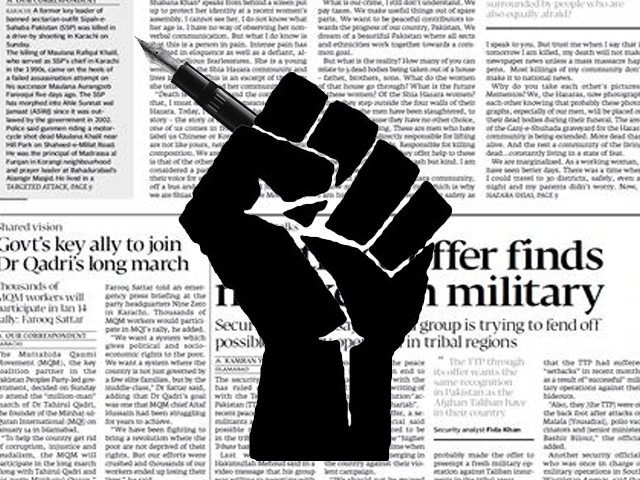
Why give female reporters 'soft' beats?
Why should male reporters be deprived of good stories because soft beat news is considered explicitly feminine?
Besides the intellectually deprived generalisation with which ‘beats’ are largely associated in media organisations across the country, what fascinates me even more is the assumption that certain beats work well with a specific gender.
In the world of journalism, where ‘beat’ actually refers to subjects which are generally covered by a reporter in the course of reporting, one of the great debates is whether a reporter covers a ‘hard beat’ or a ‘soft beat’. Let me dare to explain.
The elders of our tribe in their infinite wisdom decided to develop a relationship between news beats and genders of reporters. Hard beats, as the name suggests, largely deal with subjects considered ‘tough’ in journalistic jargon. These were usually (read: most certainly) assigned to male reporters. Examples are topics like politics, crime, economy and the like - all demanding reporting by chest thumping warriors gushing with testosterone.
But soft beats were assigned to women reporters - topics that are along the lines of entertainment, travel and the sort that somehow were made to sound like the purring of a manicured Persian cat.
To the best of my understanding, there is no hard and fast definition of what is defined as a hard or soft beat. But the usage of the terms in a specific context over the years has established meanings as universal as the terms themselves.
But I have my reservations.
While women in the profession complain of a lack of equal opportunities to cover ‘hard beat’ news, their male counterparts complain of a lack of responsible behaviour by women.
The argument presented is simple.
While young female reporters seem enthusiastic about taking on challenging roles in journalism, when given such an opportunity, they hesitate and chicken out.
What follows is the whispering of urban legends of how some ‘anonymous’ female reporters would refuse to cover protests claiming it to be too sunny, too windy, and too smoky for them, all the while begging their male colleagues to save them from their misery. Praise the Lord for the bravery of the men who came to their rescue!
Soon though, my skepticism towards such incidents nose-dived into reality with a loud bang. One fine sunny day I happened to witness the raving and ranting of a female reporter. The lady was highly offended for the office car she was travelling in, incidentally a Suzuki van, resulted in a complete mess of her hairdo while she was on her way to do a story. Mind you, the poor thing had gotten her hair done the same morning.
While such things are part of our ugly reality, one should not generalise unprofessional behaviour to be a universally accepted trait of a specific gender. It is a known fact that female reporters are subjected to carefully planned assignments aiming at discouraging and intimidating both new comers and professionals.
Sending young reporters to a morgue on their first few days is bound to get an emotional reaction, be it a male or a female reporter. In a socially repressed society like ours, many argue that the social factor prevents newsrooms from assigning tough beats to female reporters for purposes best described as ‘practical’.
However, to validate the deprivation of equal opportunities to people of equivalent skills is downright injustice. What if a male reporter despite his ‘socially favourable appearance’ fails to do justice with the story at hand? Does it justify the assignment of beats based on gender? Or even the other way around for that matter? Why should male reporters be deprived of good stories just because ‘soft beat’ news items are considered explicitly feminine?
The larger question here is not who should cover hard or soft beats. The question is that beats should be assigned in keeping with a reporter’s skill set, experience, understanding, willingness and personal interest.
Today, there are many competent male reporters covering beats described as ‘soft’ with an even higher number of female reporters professionally taking on hard beats.
Gender based stereotyping of news beats is unprofessional and unethical. Reinforcing this belief deprives an individual from equal opportunities, be it a man or a woman.
Read more by Aroosa here, or follow her on Twitter @AroosaShaukat


COMMENTS (11)
Comments are moderated and generally will be posted if they are on-topic and not abusive.
For more information, please see our Comments FAQ